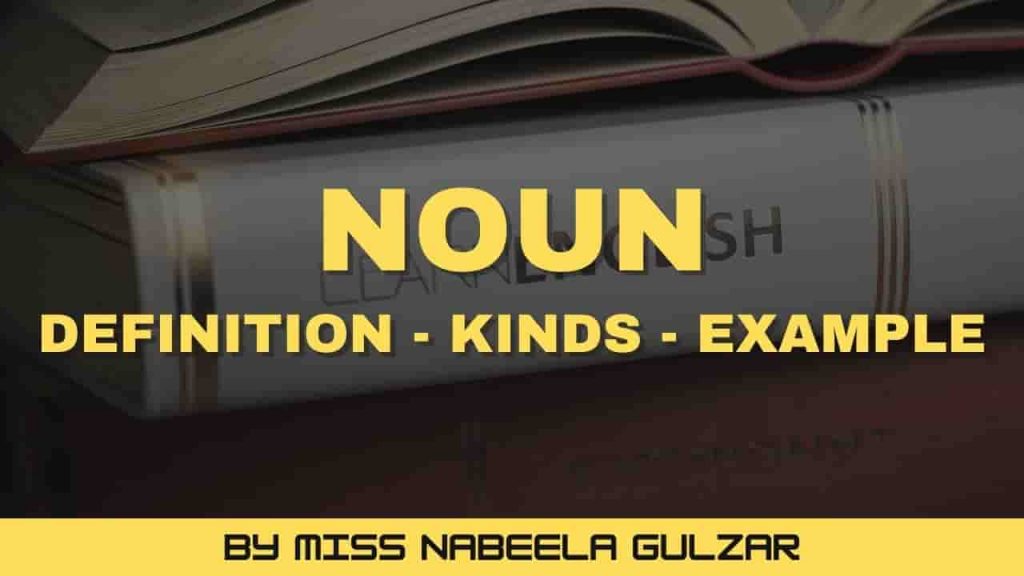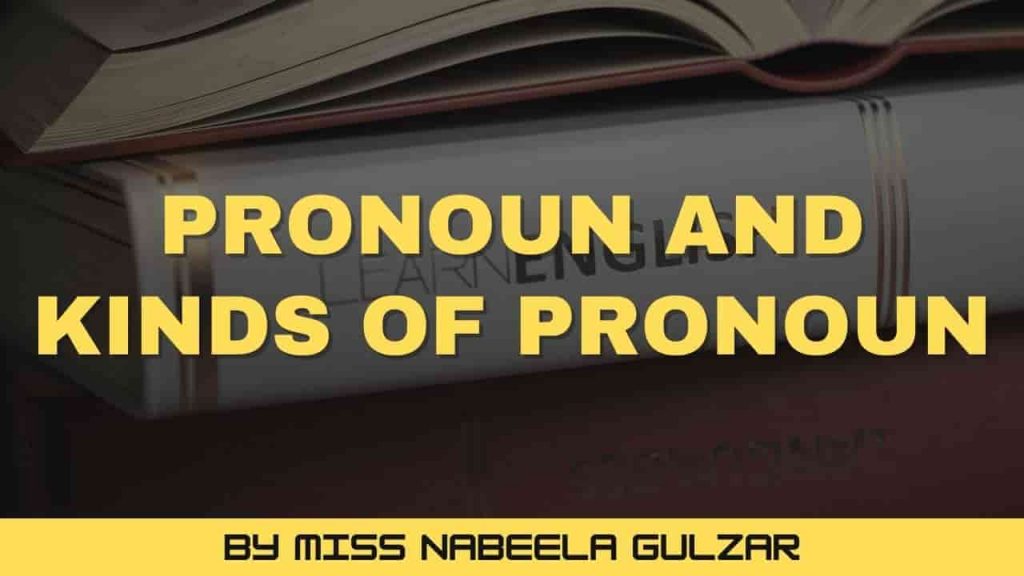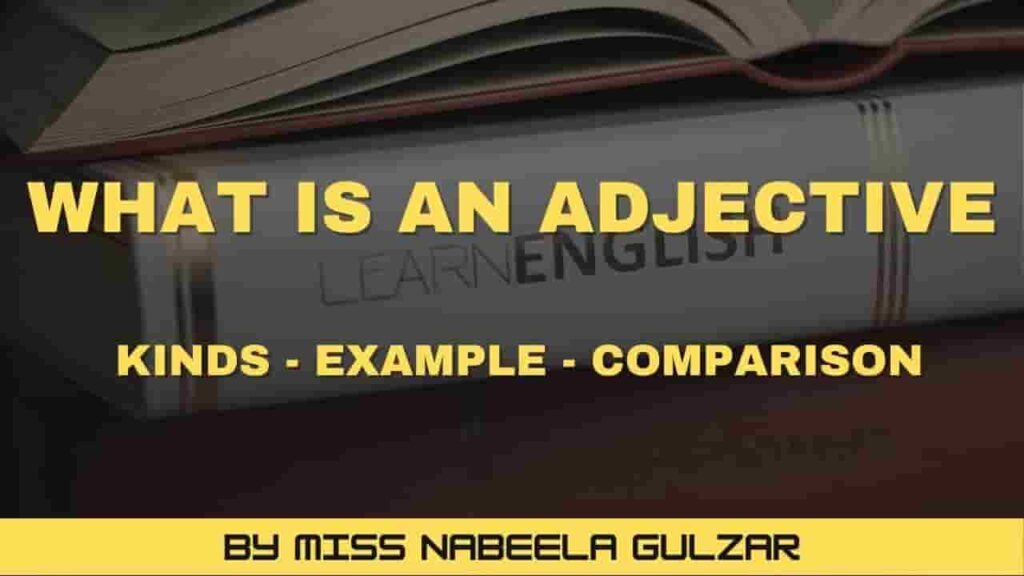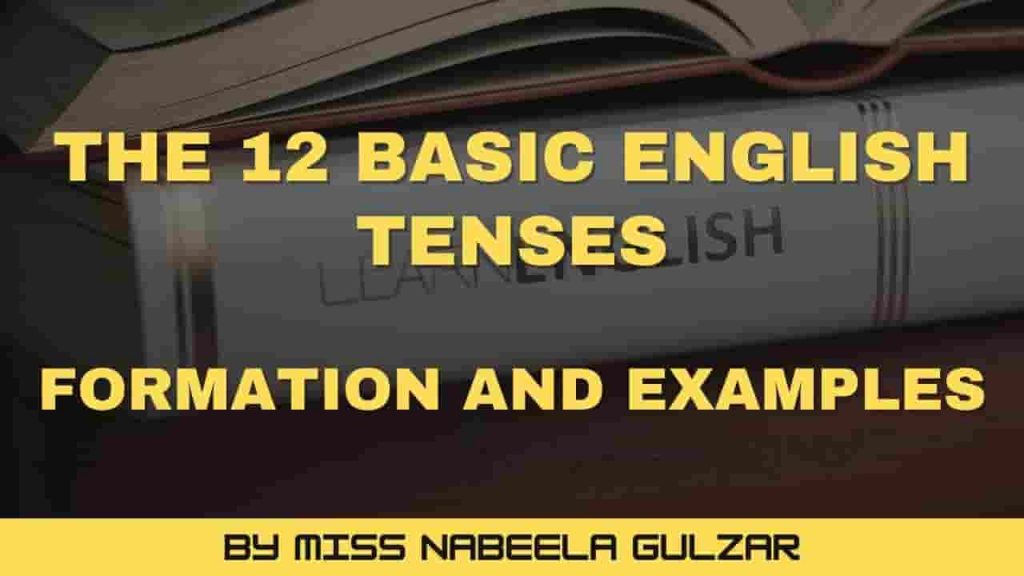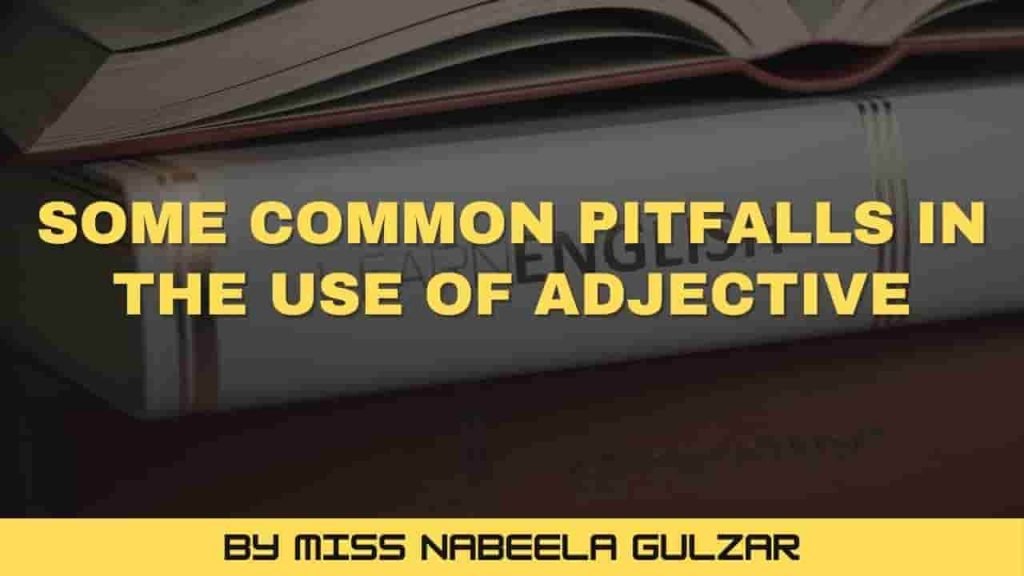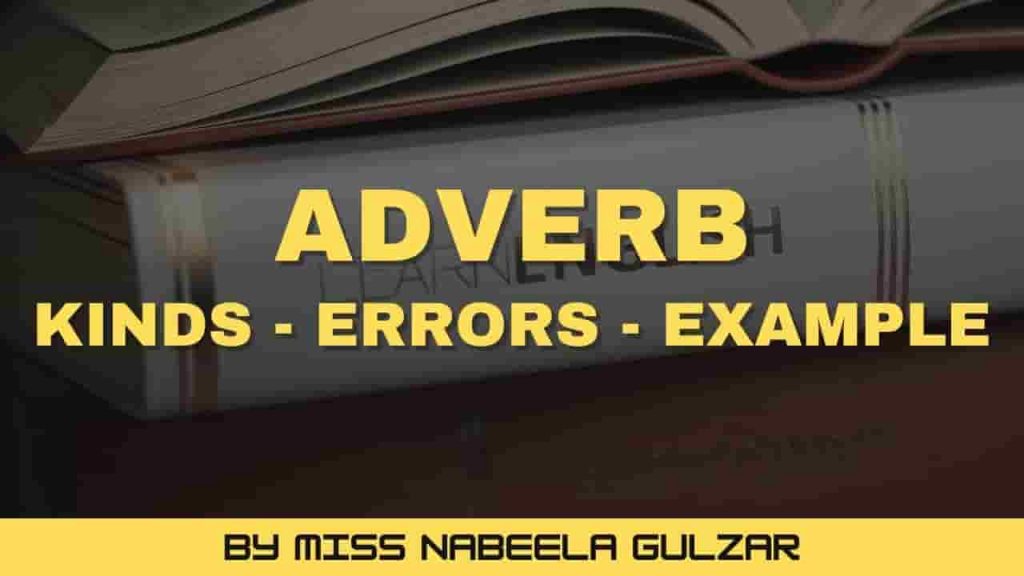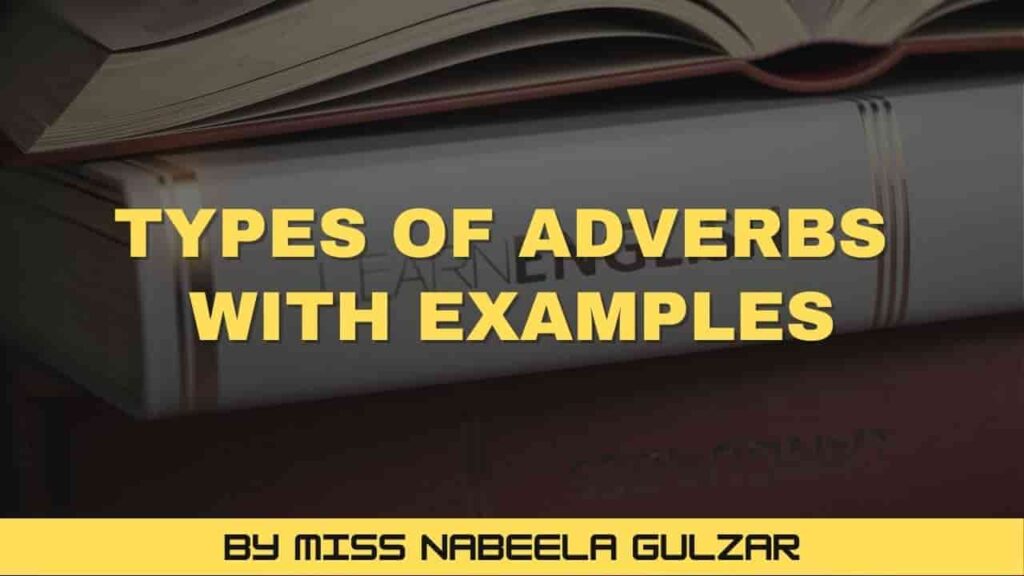Noun Definition
A word that is used as the name of a person, an animal, an object, a place, a situation, a quality, or an idea is called a noun.
Noun Examples
- Rahat is my elder brother.
- This table is too old.
- Lahore is a big city.
(in the above sentences Rahat, table, and Lahore are nouns)
Kinds of Noun
There are 11 kinds of nouns.
- Proper Noun
- Common Noun
- Collective Noun
- Material Noun
- Abstract Noun
- Abstract Noun
- Numbers of Nouns
- Regular Nouns
- Irregular Nouns
- Appositive Nouns
- Possessive Nouns
1. Proper Noun
The name of some particular person, place, or thing is called a ‘proper noun’. It is always begun with a capital letter in writing; as
Example:
- Mr. Mehmood Hasan is my father.
- I like Badshahi Mosque very much.
- Salman bought a Honda 125, yesterday
(Mr.Mehmood Hasan, Badshahi Mosque, Salman, and Honda125 are all proper nouns as they begin with a capital letter)
2. Common Noun
A name which is given in common to every person or thing of the same class or kind is called a ‘Common Noun’.
Example:
- These buildings are brand new.
- I like that child.
(buildings and child are common nouns)
There are two sub-kinds of common nouns, i.e.
- Countable Noun
- Uncountable Noun
(a) Countable Noun
All the common objects which can be counted are called ‘countable common nouns’. e.g,
(two books), (an umbrella), (six chairs), (two dozen), etc.
Example:
- There are birds in the cage.
- Children are playing in the room.
(Room and Cage are countable nouns)
(b) Uncountable Noun
All the common objects which can be counted are called ‘uncountable common nouns’.
Example:
- There is little milk in the jug.
- Put some sugar in a cup.
(some more uncountable nouns are Milk, Water, Sugar, Salt, oil, rice, hair, etc)
3. Collective Noun
The name of the same type of person or thing taken together and spoken of as one whole is called a ‘Collective Noun’.
Example:
- The Pakistan army is brave enough.
- The shepherd has taken his herd to the meadow.
- His uncle Usman is the member of Parliament.
- She has a bunch of grapes on her plate.
(Army, Herd, Parliament and Bunch are collective nouns)
Some more collective nouns are below.
| Collective Nouns | Collective Nouns |
| Assembly of people | Bunch of flowers/Grapes/Keys |
| Board of directors | Chain of Mountains |
| Clump of trees | Cluster of stars |
| Crew of sailors | Fleet of ships |
| Gallery of pictures | Flock of Geese/sheep |
| Herd of cattle | Gang of Robbers/Thieves |
| Pack of hounds/wolves | Hive of Bees |
| Shower of rain | Horde of Tourists |
| Team of oxen/players | Litter of Puppies |
| Bundle of Sticks | Troupe of Actors/ Singers |
4. Material Noun
A ‘Material Noun’ is the name of that matter, of which other things are made.
Example:
- It is a steel knife.
- This table is made of wood.
- Add some gram flour to your dish.
(Steel, Wood and Flour are material nouns)
5. Abstract Noun
An ‘Abstract Noun’ is usually the name of a quality, action or state which cannot be seen or felt.
Example:
- He was naughty in his childhood.
- Is life a bed of roses?
- Imran is known for his honesty.
(here Childhood, Life, and Honesty are abstract nouns)
Abstract Nouns are formed
(i) From Adjective; as:
(Kindness from kind), (honesty from honest), (bravery from brave), etc.
(ii) From Verbs; as:
(Obedience from obey), (growth from grow). (movement from move), etc.
(iii) From Common Nouns; as:
(Childhood from child), (slavery from slave), (mastery from master), etc.
6. Gender Nouns
Gender nouns are classified into four classes.
- Masculine Gender (Fox, wizard, father, king etc)
- Feminine Nouns (Madam, mother, queen, vixen, witch etc)
- Common Gender (Parents, pupils, officers, friends etc)
- Neuter Gender (Pen, pillow, glass, desk, laptop, etc)
7. Numbers of Nouns
The numbers of nouns are classified into two types i.e. the singular and plural nouns.
- Singular Nouns (Bird, pen, book, chair,computer, etc)
- Plural Nouns (Pens, desks, birds, trees, kites, etc)
8. Regular Nouns
Regular nouns are easily made plural by simply adding s/es at the end of the word. For example, a regular noun like books can be made plural by simply adding ‘s’ at the end of a word i.e. ‘books’ is a plural form of the word.
Examples:
| Nouns | Regular Nouns |
| Box | Boxes |
| Cap | Caps |
| Rose | Roses |
9. Irregular Nouns
Irregular Nouns are not made by adding ‘s’ or ‘es’ at the end of the word. For example, a noun ‘tooth’ is changed into a plural form ‘teeth’.
Examples:
| Nouns | Irregular Nouns |
| Man | Men |
| Mouse | Mice |
| Wife | wives |
10. Appositive Nouns
A noun that immediately follows another noun to define it further is called an appositive noun.
Example:
- Her brother, Ali, is in class six.
(Ali is an appositive noun as it is further describing the subject, her brother)
11. Possessive Nouns
A noun that indicates possession or belongings is called a possessive noun. A possessive noun is formed by using an apostrophe (‘) + s at the end of a singular noun. If a noun ends in ‘s’ then use just apostrophe (‘) with S.
For example;
- The dog’s legs.
- Saima’s collection.
- Keats’ poetry.
Noun as Subject of the Sentence:
A noun is the subject of the sentence. As Adam lives in a 2 bedroom apartment. In this sentence ‘Adam’ is a noun that is used as a subject of a sentence.
More Examples:
- The sun shines brightly. ( sun is used as noun)
- Dogs are faithful animals.(dogs are used as noun)
- Man is mortal. (man is used as noun)
Nouns as an object of the Sentence:
Nouns can be the object of a sentence for example ‘He beats his student with a stick’. In this ‘stick’ is a noun that is used as an object of the sentence.
More Examples:
- She likes mangoes. (mangoes used a noun)
- He comes here to listen to his teacher. (teacher is used as noun)
- They are coming to the playground. (playground is used as noun)
Hopefully, your concept about Noun is clear now, This lecture is part of the whole series of English Grammar by Miss Nabila Gulzar, For Other Lectures Click Here also We have an Essay on every topic, Check the complete list here. If you are Studying in Matric Free Video Lectures of Maths, Physics and English are here, and we have got you covered for I.COM Business Maths also.

